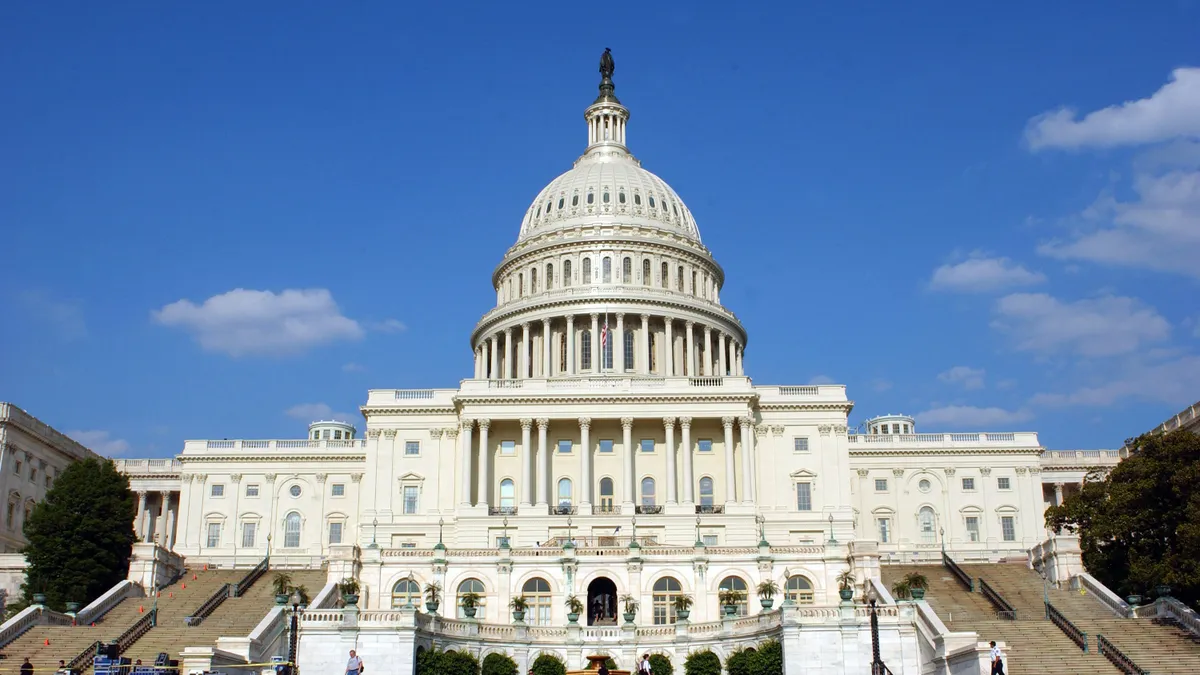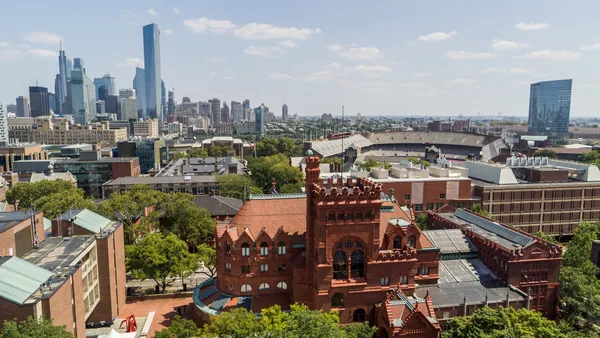Dive Brief:
- Higher education and advocacy group leaders urged Congress to help prevent further bomb threats against historically Black colleges during a U.S. House committee hearing Thursday about the rise of violent threats against minority-serving institutions.
- The Southern Poverty Law Center's CEO and president, Margaret Huang, urged lawmakers to focus on the causes behind racist rhetoric, like the far-right extremism behind the country's uptick in domestic terrorism.
- Concerns resulting from the constant threats of violence have stretched resources thin and harmed students' mental health at Morgan State University, one of the HBCUs targeted by the bomb threats, according to the university's president, David Wilson. "There is a long history of underfunding institutions like ours," Wilson said during the hearing. "When you add the bombs threats, during the pandemic, leadership must take resources from operational efforts to give to mental health efforts."
Dive Insight:
Over 20 HBCUs have received bomb threats this year, forcing them to clear campuses and cancel in-person classes. Fayetteville State University, in North Carolina, suspended all activity on campus Wednesday, following one of the most recent threats. Police issued an all-clear and classes resumed the next day. Fisk University, in Tennessee, and Howard University, in Washington, D.C., were also targeted this week.
Dozens of higher ed groups on Monday called on Congress to look into the threats and discuss ways to stop them in the future. Higher education and advocacy group leaders testified Thursday before the U.S. House Subcommittee on Crime, Terrorism and Homeland Security, which held the hearing on the increasing violence against minority institutions, including HBCUs and places of worship.
The constant state of fear on HBCU campuses has caused incredible psychological damage, Wilson said. Morgan State cleared its campus after receiving a bomb threat Feb. 1, the first day of Black History Month.
"The psychological impact cannot be overstated," he told lawmakers, adding that HBCUs traditionally provide a place of emotional well-being for Black students. "You wouldn't believe how taxed our mental health resources have been."
The FBI has provided protective training resources to Morgan State, according to Wilson, but he said his preference is to stop the threats of violence all together.
"The fragility of our campus is quite alarming," he said. "I hate to talk about preparing our campus for more threats but that's the sad reality."
Lawmakers and leaders need to focus on preventing these instances of violence, not just reacting as they occur, Huang said. In her written testimony, she listed several policy recommendations, including funding prevention initiatives to steer individuals away from hate and having people in power publicly disown political violence and extremism.
"Words matter, especially from our leaders," she said. "It is impossible to overstate the importance of elected officials, business leaders and military commanders using their public platforms to condemn hate crimes and threats to HBCUs."
In her opening remarks, she mentioned reports that the FBI is investigating six young suspects in connection to the bomb threats. One of the bomb threats was made by a person claiming to be part of a neo-Nazi organization, Buzzfeed News reported.
Telling the histories of marginalized groups helps students think more critically about themselves and their place in the world, Huang said. She hopes doing so will help prevent indoctrination into white supremacy.














